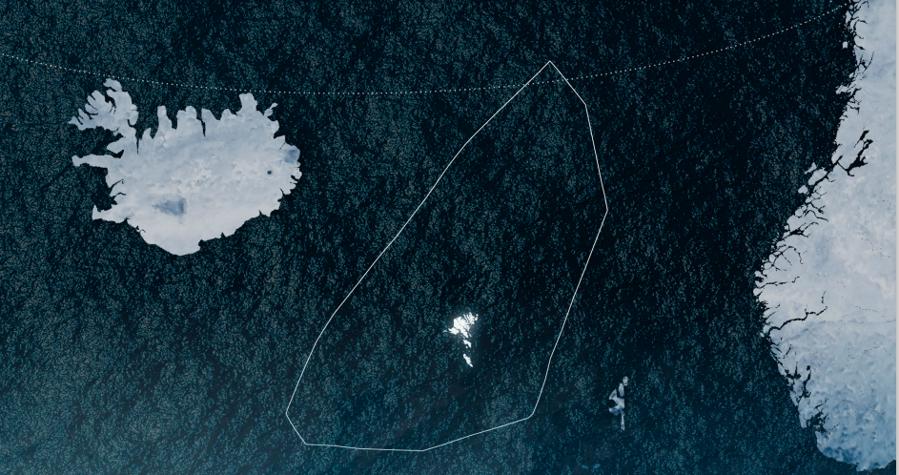
The Faroe Islands and the Arctic
The Arctic has taken a prominent place on the international agenda in recent years. From being a region largely limited to scientific interest internationally, the Arctic has today become a focal point in global politics.
The Arctic is experiencing climate change at an accelerated rate compared to the rest of the world, with its clear and tangible consequences being felt more keenly with every passing day.
These changes in the Arctic have significance for the Faroe Islands. The Faroese continental shelf extends beyond the Arctic Circle, as do fish stocks in which the Faroe Islands have a stake. As such, the Faroe Islands have the right to utilise resources north of the Arctic Circle.
As an Arctic country, the Faroe Islands, alongside other countries in the region, play a vital role in collaborative efforts to mitigate climate change and build a solid knowledge base for necessary adaptation. Additionally, countries in the Arctic region have a responsibility to ensure the safety and stability of the area. Therefore, it is imperative for the Faroe Islands to engage in communication and cooperation with allies in the Arctic and the North Atlantic.
Cooperation in the Arctic
International cooperation through organisations and collaboration between countries is of vital importance to meet the many challenges facing the international community, both in the Arctic and the world at large.
The Arctic Council
The Arctic Council is the primary forum for intergovernmental cooperation in the Arctic. The member states are the United States, Russia, Canada, Sweden, Finland, Iceland, Norway and Denmark/Greenland/Faroe Islands. The members of the Arctic Council work in close collaboration with the permanent participants, observers, and other organisations to promote cooperation in the Arctic, addressing issues such as climate change, pollution of the sea and land, and overall living conditions in the region.
The Faroe Islands have been active participants in the Arctic Council together with Greenland and Denmark since the late 1990’s and also took part in the AEPS prior to the establishment of the Arctic Council.
The Faroe Islands are part of a delegation to the Arctic Council called Denmark/Greenland/Faroe Islands.
Almost all the areas of cooperation within the Arctic Council are under the exclusive competence of the Faroese authorities.
There are six working groups within the Arctic Council, staffed with experts from the member states. These working groups are responsible for most of the assessments and status reports produced within the Council. The groups are the Arctic Monitoring and Assessment Programme (AMAP), Conservation of Arctic Flora and Fauna (CAFF), Protection of the Arctic Marine Environment (PAME), Emergency Prevention, Preparedness and Response (EPPR), Sustainable Development Working Group (SDWG), and Arctic Contaminants Action Program (ACAP).
Experts from the Faroe Islands, including those from the Faroese Environmental Agency, the Faroe Marine Institute, the national health authorities, research institutions, and the National Museum, have participated in several of the working groups, primarily AMAP and CAFF, since the early 1990s.
In addition to a relevant government official attending the ministerial meetings, which occur every other year, Faroese government officials also participate in SAO (Senior Arctic Official) meetings, the highest level meetings at the governmental level, and in meetings of the SDWG and PAME working groups, as well as other relevant gatherings.
Other international cooperation in the Arctic
Nordic cooperation is important in the Arctic context. The Faroe Islands prioritise Nordic cooperation highly and actively participate in the Arctic cooperation agenda of the Nordic Council of Ministers.
The United Nations Convention on the Law of the Sea (UNCLOS) is the foundation for some of the most important aspects of international affairs, that are strategically valuable for the Faroe Islands. UNCLOS sets out contracting parties’ rights and obligations, including delimitation and jurisdiction of coastal states, freedom of navigation, environment and pollution, as well as natural resources in the ocean and on the continental shelf.
The Faroe Islands prioritise international cooperation for the sustainable management of fish stocks in the north. This commitment is evident through active engagement in multilateral coastal state negotiations, bilateral agreements, and in regional fisheries management organisations, particularly the North-East Atlantic Fisheries Commission (NEAFC), whose convention area extends to the North Pole.
Through associate membership, the Faroe Islands prioritises an active participation in the International Maritime Organisation (IMO), the United Nations Food and Agriculture Organisation (FAO), the United Nations Educational, Scientific and Cultural Organisation (UNESCO), and the World Health Organisation (WHO).
Arctic Policy of the Faroe Islands 2024
In 2024, the Arctic Policy of the Faroe Islands was passed in the Faroese Parliament as a proposal for parliamentary resolution.
The Arctic Policy outlines the role of the Faroe Islands in the Arctic and the North Atlantic, both in the near future and in the long term.
The policy is composed of eight thematic areas:
- Stability and Security
- International Cooperation
- Environment, Nature and Climate
- Research, Knowledge Advancement and Education
- Preparedness and Response
- Marine Resources
- Economic Opportunities and Sustainable Development
- Culture and Society
Find the Arctic Policy of the Faroe Islands 2024 here.
The Faroe Islands are also part of the Kingdom of Denmark's common Arctic strategy, which is under development. The common strategy will be a revised and updated plan based on the Kingdom of Denmark's Arctic Strategy 2011-2020.
Faroese assessment from 2011 – The Faroe Islands – a Nation in the Arctic (summary available here)
The Kingdom’s strategy for the Arctic from 2011 – Kingdom of Denmark Strategy for the Arctic 2011-2020
The Faroese contribution to the EU consultation on the update of the Arctic policy can be read here.
